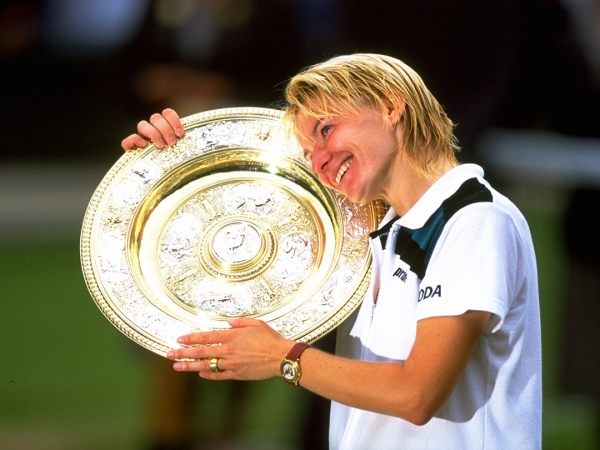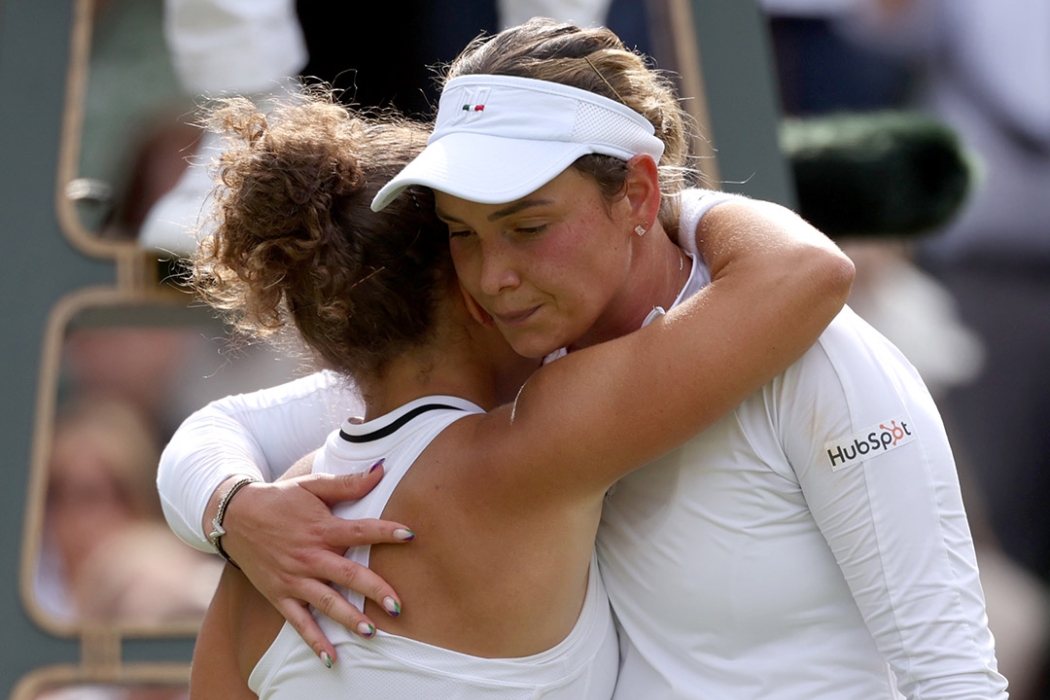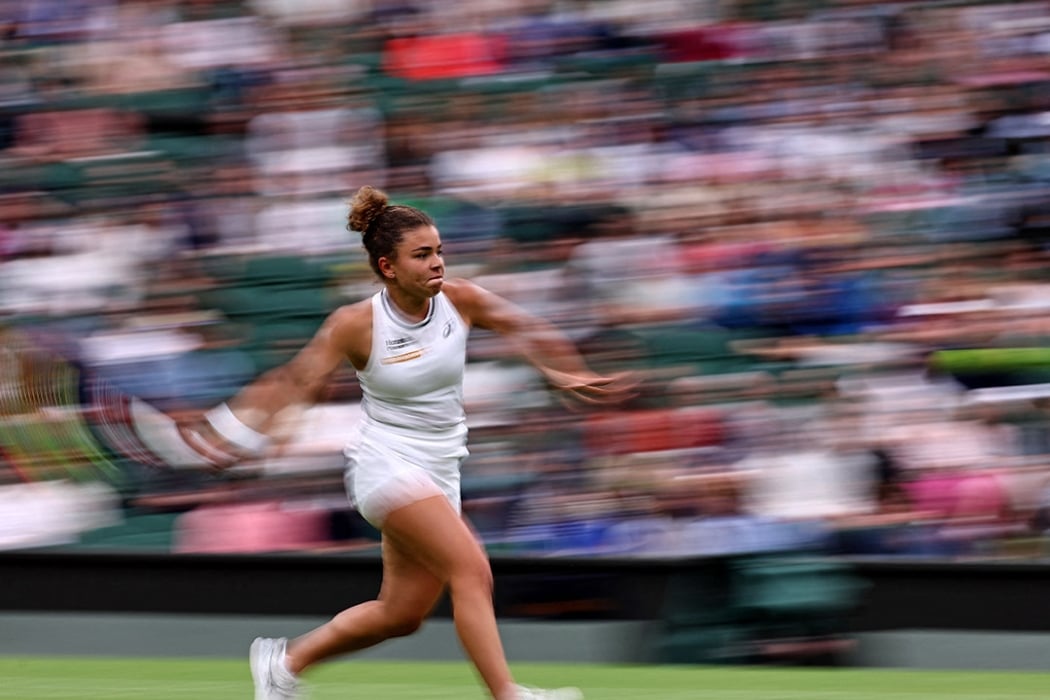Barbora Krejcikova is already a Grand Slam singles champion. But perhaps there would be something even more meaningful about winning her second at Wimbledon.
The Czech talent, a former world No.2, recovered to beat title favourite Elena Rybakina in a terrific three-set semifinal.
She will meet Jasmine Paolini for the trophy, after the Italian came through an extraordinary semifinal earlier on Thursday, ending the run of a heartbroken Donna Vekic.
It has been more than three years since Krejcikova appeared in a major singles final.
At Roland Garros in 2021, she was an unseeded world No.33 who went on to become a surprising champion, previously known better for her world-beating doubles results.
In the time since, Krejcikova has reached three more Grand Slam quarterfinals – including two at the Australian Open – and won five more titles, the biggest coming at the WTA 1000 tournament in Dubai in 2023. She has also spent a good chunk of time inside the top 10.
But this kind of form on the Grand Slam stage has come seemingly from nowhere, given her battles with a back injury and illness earlier this year.
Since her AO 2024 quarterfinal finish, she’d won only three more matches until arriving at Wimbledon, at one point losing five in a row.
“I have had many difficult periods. I mean, I never really imagined that in four weeks I could reach a Wimbledon final, that I can be a different player,” said Krejcikova, who went 0-4 on clay this year.
MORE: Is the best yet to come for Musetti at Wimbledon?
“I just told myself that I will try to enjoy everything more… that I kind of did a lot of good achievements already, that I just want to have more fun than being in more stress about tennis and about the performances.
“In the end so far I think I was very, very successful in doing that. I'm definitely enjoying this moment much more than I did in Paris, which was more stressful for me.
“I feel since then, since I won the title, it's been more relaxing.”
During that breakout run in Paris, Krejcikova acknowledged the role of her coach and mentor Jana Novotna, whom she worked with for three years before Novotna passed away in 2017 following a battle with cancer.
The symbolic nature of achieving similar success at Wimbledon is not lost on Krejcikova, who knows of Novotna’s storied relationship with the tournament.
Novotna reached the Wimbledon final in 1993, only to lose, agonisingly, from 4-1 up in the third set against Steffi Graf. Another three-set final defeat, to Martina Hingis, followed in 1997.
It was third time lucky for the popular Czech, who finally won the title she cherished most the following year.

Memories of these events are helping Krejcikova thrive this fortnight at the All England Club.
“A couple of years ago I was working with Jana Novotna, she won it here in 1998. And it was at that point she was telling me a lot of stories about her journeys here and how she was trying to win Wimbledon,” Krejcikova said on court.
MORE: Medvedev the tactician snaps Sinner’s streaks
“I was so far (away from this myself) when we had this talk, and I mean now I’m here, and wow, I’m in the finals.
“Definitely (she is my inspiration). I remember thinking about Jana a lot, I have so many beautiful memories, and when I step on the court here, I’m just fighting for every single ball, because that’s what I think she would want me to do.”
Suddenly overcome with emotion, she added: “I just miss her very much. I miss her so much.”
Krejcikova’s success also continues a long-running Czech love affair with Wimbledon.
She is the seventh Czech woman to make the women’s singles final in the Open era, while three men – Jan Kodes, Ivan Lendl and Tomas Berdych – have also been singles finalists.
This, along with Novotna’s story, is another wellspring of inspiration for her.
“We have a huge tennis history in Czech Republic at Wimbledon, but also at any other majors. I mean, when I was growing up, I had a lot of players that I could look up to,” Krejcikova said.
“It's great that right now I'm also a Slam champion and I'm in a final of Wimbledon.
“I grew up watching Fed Cup being in O2 Arena and Prague in Czech Republic, watching many finals. Everybody that was on the team was a player that I was kind of like looking up to.
“After my juniors career, it was a lot about Jana because I had an opportunity to meet her and to spend time with her and see how she behaves, who she is, how such a big champion she is.”

